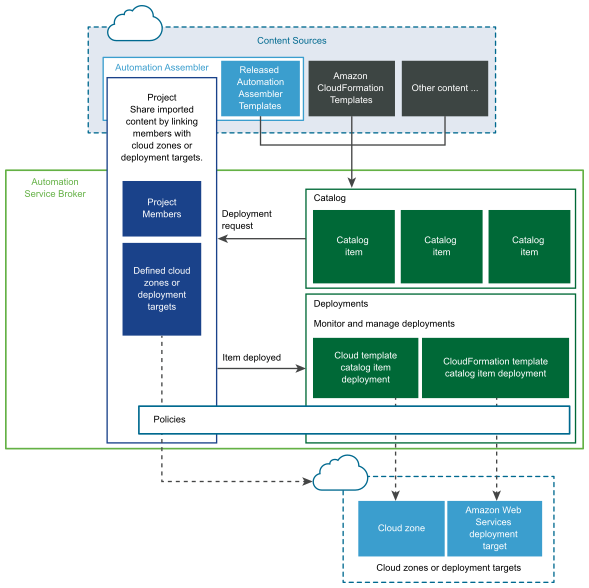The Automation Service Broker is the simplified user interface that cloud administrators make available to users when the administrator's teams do not need full access to developing and building the templates.
You use Automation Service Broker to deploy templates to cloud regions or datastores associated with projects.

To provide the templates, the cloud administrator configures content sources. The content sources can include Automation Assembler templates and Amazon CloudFormation templates. Once developed and released to the catalog, the templates become catalog items.
- The content sources are entitled to projects. Projects link a set of users with one or more target cloud zone regions or datastores.
- For example, UserA is a member of ProjectA and ProjectB, but not ProjectC. UserA sees only the imported templates that were entitled to ProjectA and ProjectB.
When users requests a catalog item, where it is deployed depends on the project selected. Projects might have one or more cloud zones.
- If UserA and UserB are members of ProjectA, they see the imported templates as catalog items. At deployment time they can deploy to ProjectA, which determines which cloud regions or datastores the catalog item is deployed to.
- The Overview page provides users with details about VMware Aria Automation components and lists the projects to which they belong.
- By selecting a project in the Projects drop-down menu, users can filter the catalog items, deployments, and resources that are available for that project. The project filter is applied globally. If no project is selected, then all available items are displayed.
After a successful request, your users can then manage their deployments by running actions, including dismiss or delete.